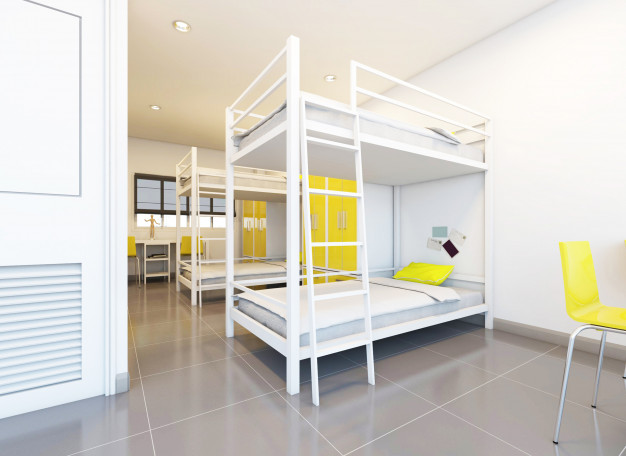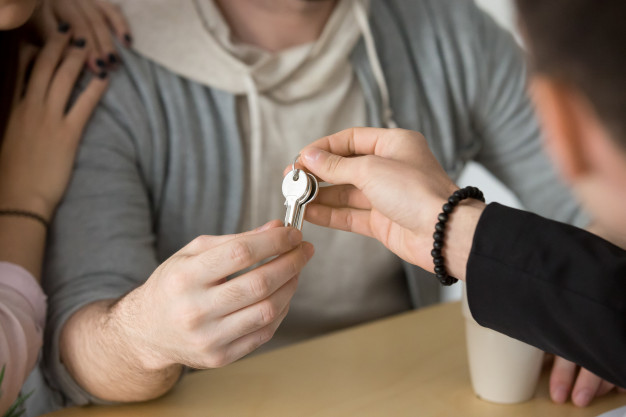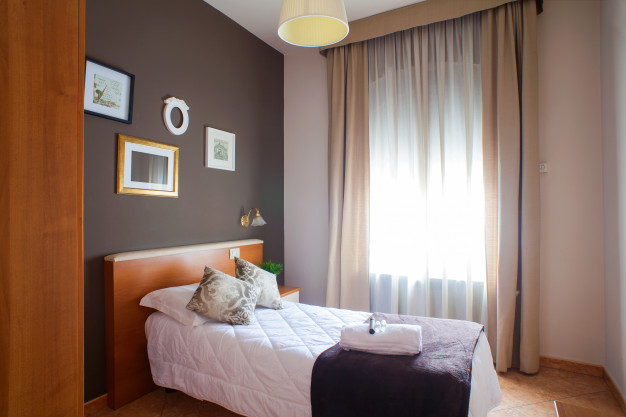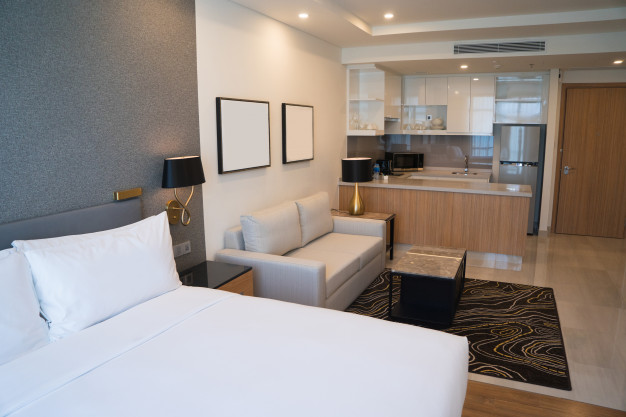
Finding suitable housing accommodations is one of the biggest decisions you might have to make as you start going to college. Finding the most suitable housing for you can get very difficult to deal with, especially when you’re searching from afar, and the only thing that you can rely on are some online images and virtual tours of the house. Wherever you choose to live is going to have a huge impact on your life as a student.
As stressful as you think this might be, you’ll eventually find somewhere to live, all you need is a little perseverance and organization. If you’re considering an off-campus accommodation, here are some tips to help you on making the search easier:
1. Start Searching Early

You must start your search early. You’re not going to be the only one who’s looking for accommodation. There might be a large number of students that are looking for the same unit as you. This will help you get ahead in the competition for ideal spots and quality rooms.
It’s recommended to start a few months before your move-in date. This will also give you some time to find housing in different areas with different prices. Find the ultimate deal-breaker and identify what you are willing to compromise.
2. Consider Your Budget

Before you begin looking for student housing, it’s important to identify how much you can afford to pay for the rent. These accommodations have different price points, so it’s essential to draw up a budget and work out some factors that you should consider, such as:
- The type of room—it could be a one-bedroom, a studio or a shared room
- Its utility cost (electricity, gas, water, etc.)
- Extra costs like cable and Internet
- Transportation cost to get to the campus if there is a need
- Do you have to purchase the furniture and appliances?
- The moving expenses. Do you need to hire a mover? Or can you do it yourself?
Some dorms can also be a little costly, especially if it comes with other benefits like gym access and other associations. Always take into account the expenses that you are willing to work with for your cost of living.
3. Search Online

Many websites like Vintageattabernacle.com can help you on finding a good starting point for your search. These websites provide different housing options that are specially made for students. Always look for websites that examine listings thoroughly so you can ensure you’re not going to run into scams.
Facebook may also be something that you can consider. There’s likely a Facebook housing group ideal for your university. There you can find the other students looking for an apartment or legitimate rent-owners in the area you want to move into.
4. Try To Get Some Information About the Property

It’s important to get an insight when you evaluate a housing unit. You can consider looking at some guide about your cities. Google can only tell you a few things. You can also use the different Facebook groups that you have joined to get an insider perspective about the area. Be aware of the warnings and recommendations that you can find there.
If you know someone who might be able to give you an insight into the area, try asking them. In this way, you can better determine what would suit your preferences and what are the things to avoid. The most helpful suggestions always come from the people who have gone through the same situations that you’re now in.
5. Safety Should Be Your Top Priority

Some people are looking for cheaper rent. But would you rather live in a place where you always have a feeling that you need to walk with an escort to walk around the neighborhood at night? If safety also means paying slightly higher rent, it’s always worth it. Safety must always be your main priority. Always consider that if you have to take a daily commute to your school, make sure that you’re in a safe and secure area.
Good student housing should have strong security measures. Your unit should also have fire alarms and basic burglar systems. If you consider living in a residence building, make sure that the entry is on tight security. Check on what they use for the key of access in the unit. Is it a traditional lock or a fob access system? If you don’t feel secured enough in that place, then it’s not the perfect student housing for you.
6. Meet The Landlord and Visit the Rental

Bring along your prospective roommate or a friend when you meet the landlord. You should be able to view the unit that you want to rent, not just on the photos. Always confirm the property if it’s the same as what’s advertised.
When you meet with the landlord, prepare some questions for them and make sure not to hold back, especially if the place is not very familiar to you. Here are some things that you might want to look into or ask about when you visit the property.
- Neighbors. You wouldn’t want to have bad neighbors. Observe what your potential neighbors’ property looks like from outside. If it looks like a party house or it has a few bottles of beer hanging around outside, think about how noises might affect you when you have to pull an all-nighter for your exams.
- What covers the rent? Ask the landlord about how much the deposit is, the other fees, and if the bills are also included in the rent.
- What comes with the property? There might be some cases where some furniture and appliances you see during the viewing aren’t going to be there when you move in. Find out if you’re going to move into an unfurnished property or not.
- Study space. One of your main goals is to have space in your unit where you can put a lot of studying. When you visit the property, make sure that there is a decent space to set up your study area. If you’re only restricted to your bed or a noisy shared area, maybe you should think about searching elsewhere.
- A written agreement will help you avoid troubles about your arrangement in the rental. Ask about the length of the contract. A standard contract usually is about 12 months long. If you aren’t planning to be around during the break, there’s a possibility that you might be able to ask for a nine-month contract. Ask the landlord to specify the terms. If you have a housemate, make sure to ask whether there is an individual contract for each tenant. If you have a joint contract, you should be aware that you might be chased your housemate does not pay the rent.
7. Make A Few Viewings

Don’t just settle with the first place you looked at. Bear in mind that you’re going to live there for a year or even more. You have to find somewhere that’s perfect for you. If you’re going to take a trip to view some places, try to list down as many properties to check as possible. Make your trip worthwhile. Once you’ve seen some accommodations that you like, don’t be pressured to sign up with something immediately. It is important to have different options to choose from.
What’s Next?

Once you’ve finally decided where to move in, there are some things you might want to do before you move in.
- Try to negotiate your rent. Don’t hesitate to negotiate the rent. The price may become flexible. Take your time to do some research and base your negotiation on the same property prices in the area.
- Talk to your housemates quickly and clearly. Get your housemates to pay the deposit and sign the paperwork before someone else nabs the property. This will help you seal the deal quickly.
- Sign the agreement. You must double-check everything and make sure that you are happy with it. If you have some housemates, make sure that they’ve read the contract thoroughly and agreed about it too. Give a copy for your landlord and keep a copy for yourself and your housemates.
There are many accommodation types that you can consider when you’re looking for student housing. Some of them include:
University Halls
These are university-managed accommodations. Living within these university halls can be very useful if you’re fond of making friends and getting to know other students. It may also be conveniently located within or near the campus, which will help you if you have group studies or lectures and have easy access to the library. If anything goes wrong, you’re going to be supported by the university itself. However, you don’t get to choose who you’re going to live with, which means you have to get used to the environment with a little mess and noise.
Private Student Halls
This has a similar setup with university halls. They are also managed by universities. The only difference is, these are owned by a private company. You have your room and a shared kitchen and tv room. You also have the option to choose to live in a studio apartment, but they are usually a little pricier.
Living At Home
This will work well for you if you want to significantly cut the rental costs. You still get to live with your family, and you won’t have to go through the hassle of moving—and possibly living with noisy or messy neighbors. Plus, you have someone else take care of the cooking, cleaning, and laundry. However, it will require you to have a little more effort to socialize with other students both in and out of lectures. If you live under someone else’s roof, that also means you should follow their rules.
Conclusion
There are many factors to consider in finding the perfect housing for a student like you. Always remember to trust your instincts in making these decisions. If something doesn’t feel right, go with your gut. You are choosing where to live for the rest of the year or so. Never sign anything without visiting the property. You may also check if your college or university has a list of approved landlords, property management companies, or campus partners. Take your time in reading some resources, and don’t be afraid to ask.












